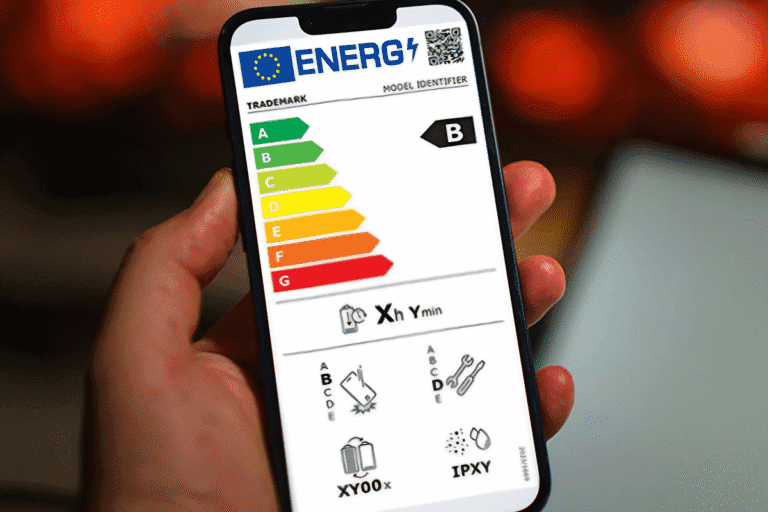Since June 20, 2025, smartphones and tablets sold in EU member countries must now display an energy label. This new labeling, similar to that already in place for household appliances, aims to guide consumers towards more sustainable purchases by highlighting energy performance, durability, repairability, and resistance of devices.
This measure is part of the European Green Deal and the EU’s ecological transition strategy. The label takes the form of a color code ranging from A (best performance) to G (lowest performance), accompanied by practical information: battery life, shock resistance, estimated lifespan, ease of repair, and water and dust resistance. The stated goals are twofold: to extend the lifespan of electronic devices and to reduce the environmental footprint associated with their production and disposal.
This harmonized labeling system at the European level replaces national initiatives, such as the repairability index in France, which has so far been limited to a few types of products. It aims to generate, by 2030, 20 billion euros in savings for European households and 2 terawatt-hours of electricity saved, equivalent to the consumption of one million French households.
However, some associations like Stop Planned Obsolescence lament that the cost of repairs is not included in the evaluation criteria. Other criticisms focus on the complexity of reading the label or the excessive emphasis placed on energy consumption, while the production of a smartphone concentrates the majority of its ecological impact due to the extraction of rare metals like lithium or palladium.
Despite these limitations, this measure marks an important step towards more responsible consumption at a time when the market for new smartphones is clearly slowing down: in 2024, 13 million devices were sold in France, compared to 20 million ten years earlier. The new system could thus encourage more consumers to prioritize repairability, longevity, and sustainability in their digital purchasing choices.


